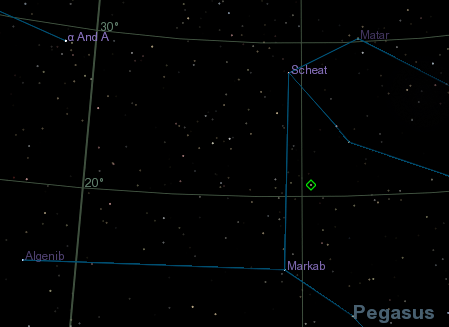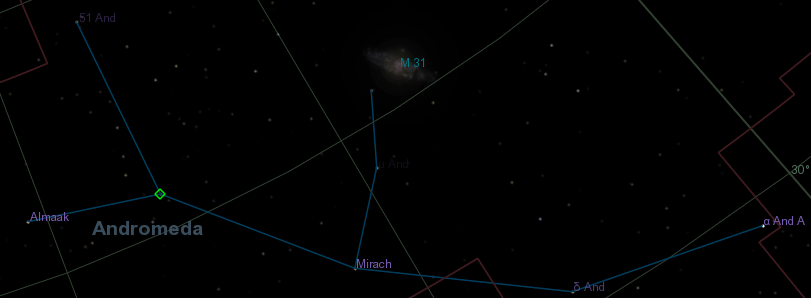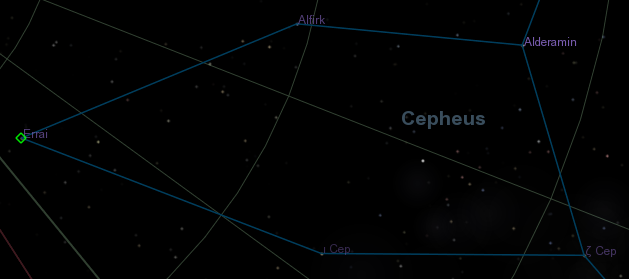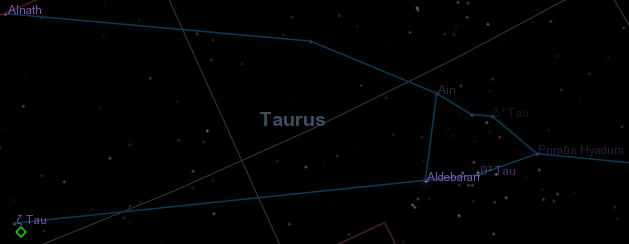
The Planets
Unfortunately, the fall and spring soundtracks aren’t the same length,
and at the very end it’s off by a little under ten seconds.
Setup
- Soundboard:
DVD show volume to –25.
- Video projector:
Monitor select and input select to line 1.
Brightness and contrast down.
Video projector monitor on.
To project the show DVD through the video projector,
plug the black “Show DVD” cable into the
show DVD’s “video 2 composite video out”
and the
video projector’s
lower “line in—1”.
- Show DVD:
- For Fall/Winter,
The Planets—Fall.
- For Spring/Summer,
The Planets—Spring.
The video projector monitor should display one large rectangular button
labelled
The Planets—FALL.
- Zeiss:
North in back as usual, 41° N latitude.
Very slow forward diurnal motion throughout the show,
but end up at the following position
when the extrasolar planet tour begins at 30:00.
- For Fall/Winter, sidereal time 2h 30m
to get
Orion
in east,
Pegasus
in west.
- For Spring/Summer, get
Vega in northeast,
Orion
in west.
(Not possible!)
- Universal projector:
Orion
(#6) if desired, brightness down.
- Slew,
zoom,
orrery:
not used.
- Spice
computer:
DVDPLNTF.CUE
for Fall,
DVDPLNTS.CUE
for Spring.
(Was originally one file,
DVD-PLNT.CUE,
in which
audience entered while
39 ' start show
was highlighted.)
- Audience entry
sequence.
Show (36 minutes)
- Launch by pressing
PLAY/PAUSE
on
show DVD
or
ENTER
on DVD remote.
When rectangular button disappears from the video projector monitor,
video projector
brightness and contrast up.
Zeiss
stars on, very slow forward diurnal motion.
- 4:00:
“… shattered
comets
… and the
Earth
gained an atmosphere.
This
early
atmosphere
was rich in
carbon dioxide.”
Zeiss
stars off.
- 4:25:
“…wondered about all these great events
that happened so long ago.”
Zeiss
stars on.
- 36:45:
Between the end of the credits and the start of the cove lights,
PLAY/PAUSE
the
show DVD
and talk about the sky tonight or recent discoveries.
Follow right side of Great Square of
Pegasus
down to
Fomalhaut
in
Piscis Austrinus
below
Aquarius,
RA 22h 58m Dec –29° 37′.
Location shown with green
Celestia
diamond.
- 31:04:
Sirius.
“One of the nearest stars to us …&rdquo
- 31:30:
Pegasus
and
51 Pegasi,
RA 22h 57m
Dec +20° 46′.
The Great Square is composed of

- 32:27:
Andromeda.
- 32:40:
υ
Andromedæ (upsilon),
RA 1h 37m
Dec +41° 24′.

- 32:52:
Cassiopea.
- 32:59:
Cepheus.
- 33:05:
γ Cephei,
RA 23h 39m
Dec +77° 38′.

- 33:22:
Taurus:
“And in the eastern sky …”
Zeiss
zodiac on.
HD 37124,
RA 5h 37m
Dec +20° 44′.

- 33:46:
Eridanus.
- 33:50:
ε Eradini,
RA 3h 33m
Dec –9° 27′.

- Orion Nebula.
“The existance of these distance worlds is inferred …”
Zeiss
zodiac off.
- 47
Ursæ Majoris,
RA
10h
59m
Dec +40° 26′.
- ρ
Coronæ Borealis,
RA
16h
01m
Dec +33° 18′.
- τ Boötes,
RA
13h
47m
Dec +17° 27′.
- 70 Virginis,
RA
13h
28m
Dec +13° 47′.
- 55 Cancri,
RA
08h
53m
Dec +28° 20′.
Links
- Wikipedia Links:
Mercury
Venus
Earth
Mars
Jupiter
Saturn
Uranus
Neptune
Pluto
Sirius
51 Pegasi
υ
Andromedæ
γ Cephei
HD 37124
ε Eradini
Orion Nebula
- Southeastern Planetarium Association
show page.
- Narrated by
Kate Mulgrew,
Captain
Kathryn Janeway
of
Star Trek:Voyager.
- Trailer.
- Cheat sheet.










